- Home
- Scott Mariani
THE TUNNEL: A Ben Hope Story Page 3
THE TUNNEL: A Ben Hope Story Read online
Page 3
The struggle was short, intense and vicious. Ben’s gloved fist closed on the shotgun. He gripped it tightly and twisted it away from his face and thrust it backwards with all the violence he could muster, trying to unbalance the attacker who’d just almost managed to kill him. The shotgun butt slammed against the man’s collarbone and Ben felt the snap resonate through the length of the weapon as it broke. There was no time to turn the gun on his attacker. No time to draw his own pistol, no time to do anything except hurl himself at the guy in a wild exchange of strike, block, strike, block, kick and punch and head-butt and elbow and gouge. Ben’s opponent was strong and young and well-trained. It was hand-to-hand brutality in its purest form for several seconds, and it could have gone either way until Ben landed an elbow strike against his enemy’s smashed collarbone that produced a sharp scream of agony. The man staggered back a step and Ben hit him with a pincer punch to the throat that collapsed his windpipe. Disabled and choking and clawing at his neck to try to get air that would never come, the man crashed to the floor. Ben grabbed a heavy brass candlestick from a side table and upended it like a short axe and pounded its circular base into the man’s skull until he stopped thrashing and became inert.
Ben tossed away the bloody candlestick and leaned against the wall, panting hard. He closed his eyes for a few moments until he got his breath back and his hands stopped shaking. He was numb from all the blows he’d absorbed on his chest and arms, but he knew there’d be plenty of pain in his short-term future. If he lived that long. Falconer was still somewhere in the house.
Ben limped back to retrieve his fallen weapon. He picked up the blood trail again and started following it through the house. Nobody else tried to kill him. Not yet.
The further it went, the more the blood trail thickened. The zigzag of splashes and smears led Ben past doorways and rooms to a downward flight of stone steps. At the bottom of the steps was another door, heavy oak, with ancient iron hinges. A bloody hand was printed on the wood. More smears were on the old iron handle.
Ben opened the door slowly and tentatively, ready to shoot. The steps continued downwards into what he realised was not a basement, as he’d first thought, but a wine cellar, with a bare concrete floor and dim lighting from naked bulbs suspended on their wires from the arched ceiling. Ben descended the steps. The cellar smelled of damp. It was richly stocked with hundreds of bottles stored vertically on tall wooden racks. A connoisseur’s collection, labels faded and mildewed with age, the dark green bottles all dusty and venerable.
The blood trail snaked over the concrete floor, between the wine racks to where it terminated in a spreading pool in a corner. In the middle of the pool, sitting slumped against the wall with his legs splayed out in front of him, his chest heaving, his head lolling on his shoulder with a grimace of pain etched on his lean face, was Brigadier Liam Falconer CBE, former Director of UK Special Forces.
‘You shot me,’ he breathed.
Ben looked at him. Falconer stared back, his teeth slightly bared, like a trapped wild animal. His right hand fingers were still loosely curled around the handle of his Colt 1911 automatic pistol, but he could no longer raise it. His right arm was broken and useless, the sleeve of his white shirt almost black with blood. His left hand was clamped to the more severe wound in his stomach, the one most of the blood was coming from. Penetrating a solid oak door wiped some velocity off a nine-millimetre bullet. But not enough to prevent it from doing real damage to anyone who might be standing on the other side.
‘You’re not looking so good, Liam,’ Ben said, walking up to him. He kicked the .45 auto from Falconer’s hand. It clattered across the concrete floor, far out of the wounded man’s reach. Ben stepped back again. Falconer was in serious trouble. But he was also probably one of the hardest men to kill that Ben had ever known. It wouldn’t have been a good idea to get too complacent, or too close.
Falconer laughed, then broke into a cough. He spat. The spit came out red. ‘Benedict Hope.’
Ben shook his head. ‘Come on. You know I hate being called Benedict. By the way, your guard dogs are dead. It’s just you and me now.’
‘Why are you here, Major?’ Falconer tried to move, and his face clouded with pain. He winced.
‘Don’t call me that either. Just Ben will do fine. And I think you know why I’m here. I came to find out if what I’ve heard is true.’
Falconer glared up at him through eyes narrowed to slits. ‘I have no idea what you’re talking about. You broke into my house. You killed my men. What the hell are you playing at, Hope? Is what true?’
‘Don’t waste time you don’t have,’ Ben said. ‘You should have guessed that Operation Solitaire would catch up with you, sooner or later. You’ve had seven years to atone for it. Have you?’
‘Operation what?’
‘You heard me,’ Ben said.
‘I heard you. I’m not aware of any mission of that name.’
‘Then let me be a little more specific, to refresh your memory,’ Ben said. ‘Twenty-three minutes after midnight on the last day of August, 1997. The Pont de l’Alma road tunnel on the banks of the Seine River, in Paris. I was in Bosnia at that time, chasing down war criminals. Where were you? Did you oversee the operation in person, or did you just run things from a cosy little office somewhere?’
Falconer pressed his left hand more tightly against his stomach. Blood leaked out from between his fingers. He groaned. ‘I won’t talk.’
‘Yes, you will. Because I don’t take silence for an answer. And because you’re a dying man. If you don’t get to a hospital, that bullet in your belly is going to make you bleed to death. You don’t have very long, so you’d best get started.’
‘Don’t be a fool,’ Falconer said. ‘Do yourself a favour and walk away now. Call me an ambulance on your way out. No reprisals. It’s over.’
Ben took another step closer. ‘We’ve gone from “I don’t remember” to “no comment” to “let’s make a deal”. So far, I’m not hearing any hot denials.’
Falconer spat again. Redder this time. ‘Would it do me any good?’
‘None whatsoever,’ Ben said.
‘What if I were to plead my case? Lay out the evidence to prove to you that whatever it is you think we did, you’re making a huge mistake?’
Ben shook his head. ‘I’m not here to listen to more evidence, Liam. The official version of events has become a matter of historical record now. If they ever open another inquest, it’ll be just the same old rubber stamp job. As far as anyone’s concerned, you got away with it. And as for the Increment, they never existed.’
4
The Increment. Inside the secretive walls-within-walls of UK Special Forces, Ben had always believed they were more myth than legend. What the verifiable facts said was . . . nothing. Because nothing about the Increment was, ever had been, or ever would be, verifiable. What the rumours said, and had repeated persistently for years, was that the Increment was the name given to an ultra-covert black ops organisation that worked invisibly under the auspices of the British Ministry of Defence, so low in profile as to be known only to an élite core of individuals. It was whispered that the unit was composed of secretly-selected recruits from the Special Air Service, Special Boat Service and MI6, and existed to provide military and intelligence services of the kind that could quickly and easily be denied by officialdom, in the event of such covert operations becoming compromised.
In other words, the Increment was an illegal paramilitary assassination team. Employing only a certain breed of operative, possessed of the necessary qualities above and beyond those of normal Special Forces soldiers. Above and beyond, not in terms of their physical or mental ability, but in terms of their moral flexibility and willingness to accept missions so dirty that normal men couldn’t be asked to carry them out, or trusted not to speak out in protest at what they were being asked to do. For that reason, the very existence of the Increment was kept hidden even from the closest comrades of the men within it.<
br />
That was, if you bought into the rumours. Ben never had, because wild speculation and crazy conspiracy stories had forever buzzed around the closed world of SF like flies trying to land on a foil-wrapped turd.
But now he knew differently.
Falconer coughed. He wiped red from the corner of his mouth. The colour was arterial bright. ‘Who said they did exist?’ he rasped.
‘Jaco Lennox did,’ Ben replied. ‘He was one of them. You should never have trusted him, Liam. The problem with hiring men of loose morals is that they tend to have large appetites. To keep them happy, you have to pay them a hell of a lot. But the likes of Jaco Lennox don’t believe in stashing it away for a rainy day. Once he’d drunk himself into a hole and the money ran out, you should have known that he’d fall apart. He was a loser who was guaranteed to burn out and start blowing his mouth off. If it had been me, I’d have kept a closer watch over him.’
Falconer let out a bitter, resigned-sounding laugh, and his shoulders sagged. ‘We had our suspicions. But we couldn’t mount constant surveillance. We didn’t have the resources.’
Another piece of the puzzle slotted into place in Ben’s mind. It was all beginning to make sense.
‘I wasn’t the only one Lennox blabbed to, was I? Talking to me was what broke the dam. My guess is that soon afterwards, he started making calls. And I’m also guessing that MI6 were listening in. That’s when they realised Lennox was going into serious meltdown and drinking heavily. How were they to know who he might talk to next? What if he went to the media? What if some idealistic reporter locked him down and sobered him up and got the whole story out of him? It would have been unsurvivable. He had to be silenced before the worst happened. Another little job for the Increment. How am I doing so far?’
Falconer said nothing. Which was the same as saying everything. Ben knew he was right.
‘A drunk like Lennox couldn’t have been hard to pick up. The usual method. A dark street, no witnesses. One guy comes up to ask the time. The other steps up behind and puts a bag over his head. Then they cuffed and stuffed him into a van, drove him out into Epping Forest, popped two in his head for good measure and then strung him up with his hands still tied. Not the neatest job in the world, was it?’
‘I had nothing to do with it,’ Falconer protested.
‘Of course not. You’re retired,’ Ben said. ‘Now, I’d imagine that before they killed him, they pressed him to find out who he’d already been talking to. I’m guessing he confessed that he’d spilled his guts to someone from the regiment. Hence the guard dogs. You were expecting trouble. But you didn’t know who was coming, or else you’d have made damn sure you got to them first. My guess is, the night I met Lennox he was so pissed he couldn’t remember afterwards who it was. Am I right?’
Falconer gave a weary sigh. He slowly closed his eyes, then reopened them. Something rattled in his throat. ‘We narrowed it down a list of four potential names,’ he said, after a beat.
‘Was I on the list?’
Falconer nodded. ‘We knew that if it was you, you wouldn’t take it lightly. A team was dispatched to Ireland to look for you, but you weren’t at home.’
‘I’m a restless soul,’ Ben said. ‘What about the other three? You’d better not tell me they’ve come to any harm.’
‘Still watching them,’ Falconer said quietly.
‘So then you decided to post your guys here and wait. Nice work, Liam. You’ve got a great big guilty sign hanging around your neck. Just as I thought.’
‘You know damn all,’ Falconer said, his anger flaring up. ‘You’re shooting in the dark with only the ravings of a drunken idiot to go on.’
‘Not quite,’ Ben said. Not taking his eyes off Falconer for a second, he tore open the Velcro fastener of one of the pockets of his black combat jacket. He slipped out a slim package wrapped in waterproof plastic. Inside were four glossy 9x13 photographic prints. He drew one of them out and flicked it into Falconer’s lap. Falconer hesitated, then slowly peeled his left hand away from his stomach and reached down to pick it up. When he did it, Ben could see the fresh blood leaking from the bullet hole in his abdomen. Falconer must have been in terrible pain.
The photo was of a white car, a boxy, no-frills hatchback. It was parked on grass with trees in the background. The angle of the shot showed that it had French number plates.
‘Fiat Uno,’ Ben said. ‘Familiar to you?’
Falconer tossed the photo on the floor, where it landed in the pool of blood and started absorbing red. ‘I don’t remember having seen it before,’ he murmured, exhausted from the movement. His energy was steadily ebbing away.
‘Neither does its former owner,’ Ben said. ‘That’s because he’s been dead for four years. His name was James Andanson. You knew him, didn’t you, Liam?’
Falconer stared at Ben but said nothing.
‘Need me to jog your memory again?’ Ben said. ‘Andanson was a photographer. A very successful, very wealthy photographer. Born in England, lived in France. Aged fifty-four when he died. He made his money hounding a lot of silly famous people all over the world to sell his snaps to the press. Personally, why anyone would want to pay to see those kinds of pictures is a mystery. Celebrity gossip never was my thing and I don’t read the papers. But I do know that Andanson was in the Pont de l’Alma road tunnel that night. And I also know that he wasn’t just your regular lens hound. Once upon a time, or so I’ve been told, he served a spell in the Territorial SAS. Later on he worked as an informer and freelance agent for MI6 and French Intelligence. Some might even go so far as to claim he was working for the Increment. That sounds about right to me.’
‘You’re insane, Hope.’
Ben smiled darkly. ‘I must be. What a way to spend your Christmas Eve.’ He drew another photo from the plastic wrap. It showed another car. This time, a black BMW saloon. It was parked in a clearing in a forest, dappled sunlight filtering through the foliage. The car was a burned-out wreck, sitting on bare rims, its glass streaked with soot, most of the plastic trim shrivelled away to a crisp. The fire had been so hot that it had melted the paint down to the bare metal in places. The forest floor around the car was scorched black.
‘Seems like working for the Increment must be a stressful occupation,’ Ben said. ‘Judging by the suicide rate among its members. Jaco Lennox wasn’t the first, was he?’
Again, Ben spun the photo into Falconer’s lap. Again, Falconer just gave the picture a momentary glance before he silently discarded it.
Ben said, ‘That was the car James Andanson owned at the time he killed himself in May 2000, in woodland near Montpellier, four hundred miles from his home in Nant. Did a pretty thorough job of it, too, just like Jaco Lennox. It took a month for the French police to identify him from dental records. Some people take pills, others slit their veins in the bath, others jump off cliffs or under trains. Seems that our man Andanson drove hundreds of miles into the middle of the sticks, with no ignition keys anywhere on his person or in the car, then doused himself with twenty litres of petrol from jerrycans he’d bought en route. After he’d emptied the lot, he fastened his seatbelt and locked the car doors. Still with no keys. Then he shot himself twice in the head, then torched the car from the outside, with himself locked in it.’ Ben smiled grimly. ‘Now that shows some kind of ability, even for a former Territorial SAS guy. Wouldn’t you say so, Brigadier?’
‘There’s no evidence of any of that.’
‘Of course not. At least, none that would be admitted to an official investigation. Maybe that’s why the coroner decided to write it up as suicide. Or maybe someone just paid him to. We’ll never know, will we? I tried to find the coroner who signed off on the body, but it turns out the guy died of cancer last year. Shame.’
Ben took out the third photograph and tossed it down for Falconer to see. ‘But this guy here had some interesting things to say.’ The photo was of a white male, forties, receding dark hair and sunglasses.
‘His name is C
hristophe Pelât,’ Ben said. ‘He’s a fireman who works in Montpellier, and he and his crew were the first to arrive at the scene of Andanson’s burnt-out car. Now he lives in fear. When I tracked him down at his home, he had the strangest notion that I was an assassin come to shoot him. Then when he realised I wasn’t, he became a little more amenable. He confirmed that even though the body was heavily charred, to the point of being virtually unrecognisable, he was certain that the victim had been shot at least once in the head, and probably twice.’
‘That’s all just hearsay and speculation,’ Falconer said. He broke into another fit of coughing that doubled him up in agony.
‘Maybe so,’ Ben said, taking the fourth and final photo from the plastic wrap. ‘I wonder what this man would have to say about that.’ Once more, he tossed the picture at Falconer. Once more, Falconer barely looked at it.
‘Actually, he probably wouldn’t say too much,’ Ben said. ‘Not any more. Because guess what? He’s dead too. His name was Frédéric Dard. He was a French crime novelist who lived in Switzerland. Famous one, too. Wrote more than three hundred books, sold hundreds of millions of the damn things. I tried to read one of them, on the plane back from France. I thought it was trash, but what do I know?’
‘Is there a point to any of this?’ Falconer grated. ‘I’m bleeding here.’
‘Oh, there is,’ Ben said. ‘As it turns out, Dard wasn’t just interested in writing fiction. He and Andanson were friends, and they’d been talking about co-writing a book about what really happened in that tunnel in Paris seven years ago. They were going to blow the lid off the whole thing. Except it never happened, and it never will. Dard died just five weeks after his would-be co-author. Heart attack.’ Ben smiled. ‘Tell me, Liam. Are the CIA and MI6 boys still using poison to induce fatal cardiac arrest, or have they come up with fancier methods since the Cold War?’

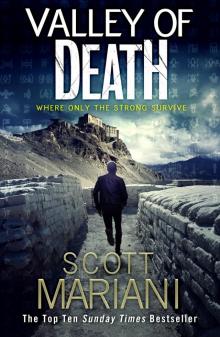 Valley of Death
Valley of Death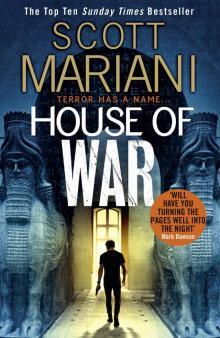 House of War
House of War The Pandemic Plot
The Pandemic Plot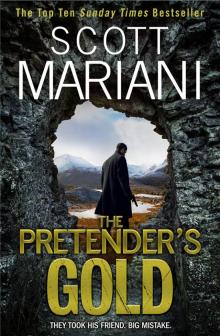 The Pretender's Gold
The Pretender's Gold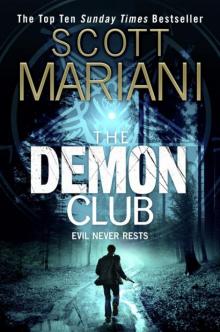 The Demon Club
The Demon Club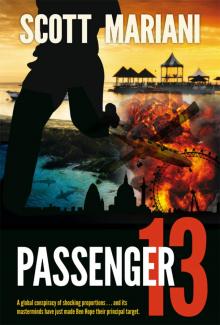 Passenger 13 (Ben Hope eBook originals)
Passenger 13 (Ben Hope eBook originals)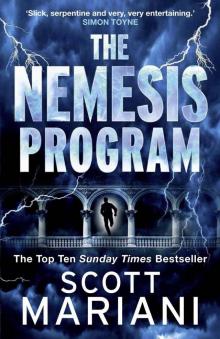 The Nemesis Program_Ben Hope
The Nemesis Program_Ben Hope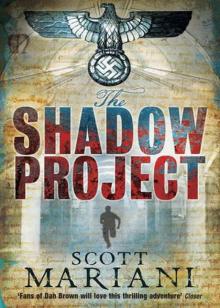 The Shadow Project
The Shadow Project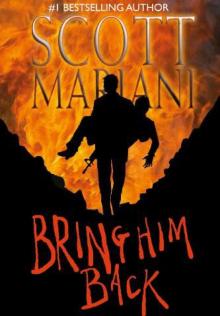 Bring Him Back
Bring Him Back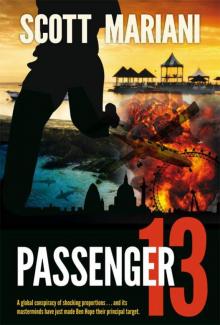 Passenger 13
Passenger 13 Sacred Sword (Ben Hope 7)
Sacred Sword (Ben Hope 7)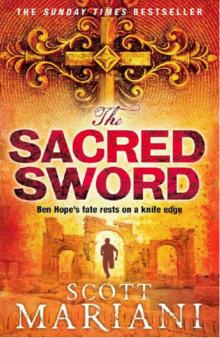 The Sacred Sword (Ben Hope 7)
The Sacred Sword (Ben Hope 7)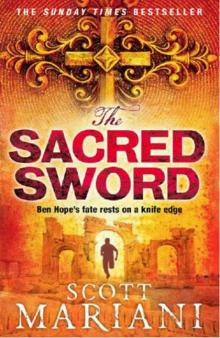 Sacred Sword
Sacred Sword The Babylon Idol
The Babylon Idol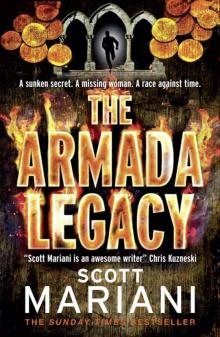 The Armada Legacy
The Armada Legacy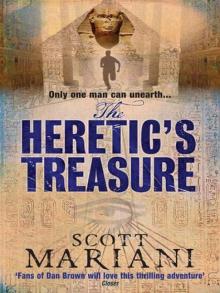 The Heretic's Treasure
The Heretic's Treasure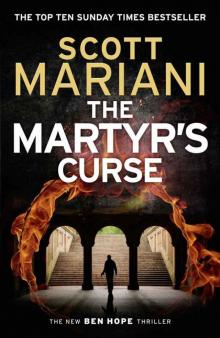 The Martyr’s Curse
The Martyr’s Curse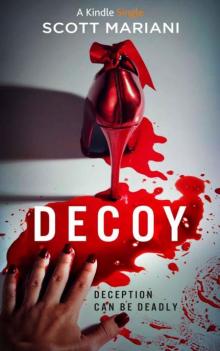 DECOY (Kindle Single)
DECOY (Kindle Single)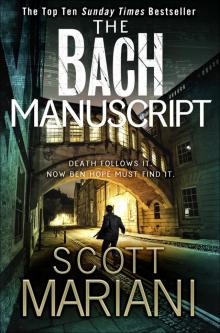 The Bach Manuscript
The Bach Manuscript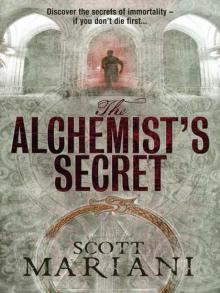 The Alchemist's Secret
The Alchemist's Secret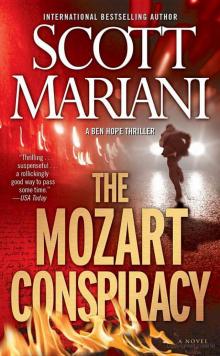 The Mozart Conspiracy: A Novel bh-2
The Mozart Conspiracy: A Novel bh-2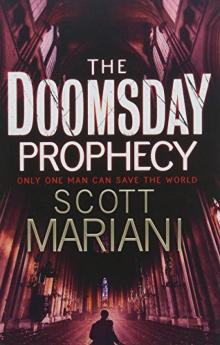 The Doomsday Prophecy
The Doomsday Prophecy The Ben Hope Collection: 6 BOOK SET
The Ben Hope Collection: 6 BOOK SET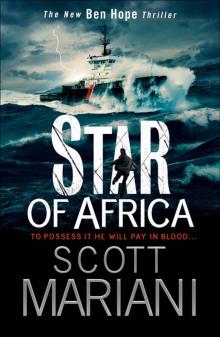 Star of Africa (Ben Hope, Book 13)
Star of Africa (Ben Hope, Book 13)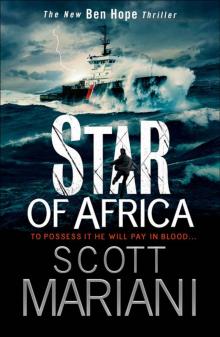 Star of Africa
Star of Africa The Forgotten Holocaust (Ben Hope, Book 10)
The Forgotten Holocaust (Ben Hope, Book 10)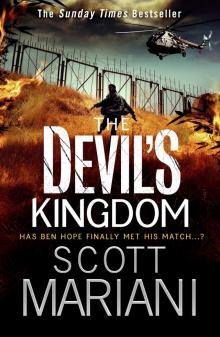 The Devil's Kingdom
The Devil's Kingdom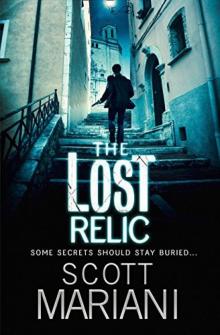 The Lost Relic
The Lost Relic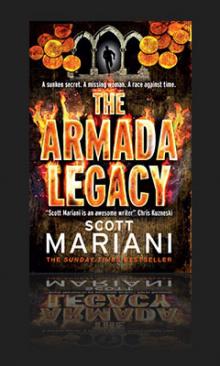 The Armada Legacy bh-8
The Armada Legacy bh-8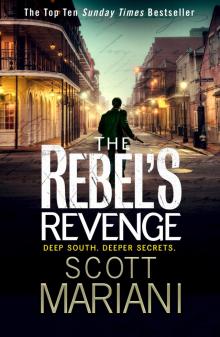 The Rebel's Revenge
The Rebel's Revenge The Forgotten Holocaust
The Forgotten Holocaust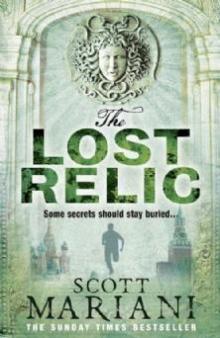 The Lost Relic bh-6
The Lost Relic bh-6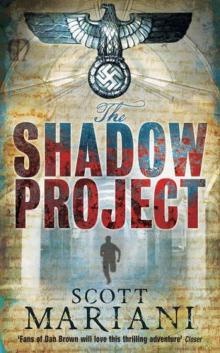 Ben Hope 05 - The Shadow Project
Ben Hope 05 - The Shadow Project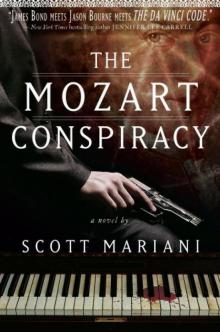 The Mozart Conspiracy
The Mozart Conspiracy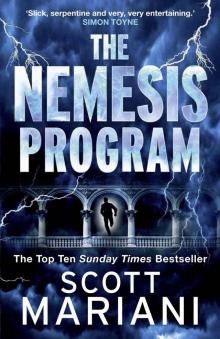 The Nemesis Program
The Nemesis Program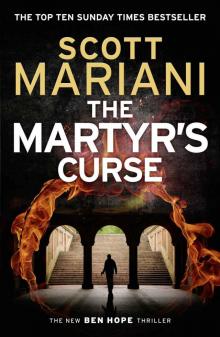 The Martyr’s Curse (Ben Hope, Book 11)
The Martyr’s Curse (Ben Hope, Book 11)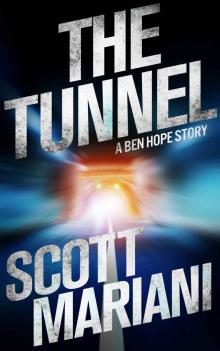 THE TUNNEL: A Ben Hope Story
THE TUNNEL: A Ben Hope Story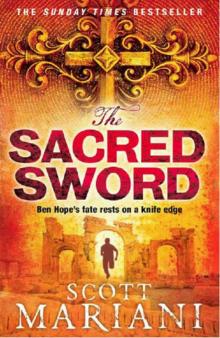 The Sacred Sword bh-7
The Sacred Sword bh-7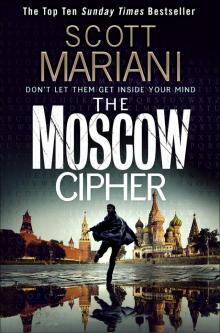 The Moscow Cipher
The Moscow Cipher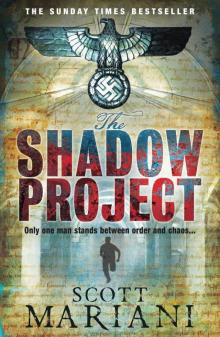 The Shadow Project bh-5
The Shadow Project bh-5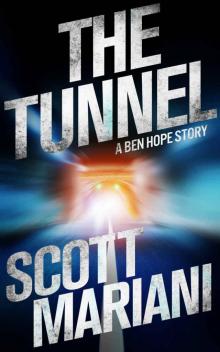 The Tunnel
The Tunnel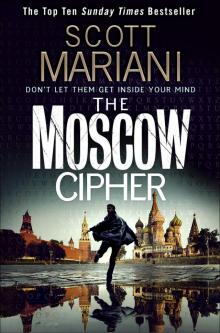 The Moscow Cipher (Ben Hope, Book 17)
The Moscow Cipher (Ben Hope, Book 17)